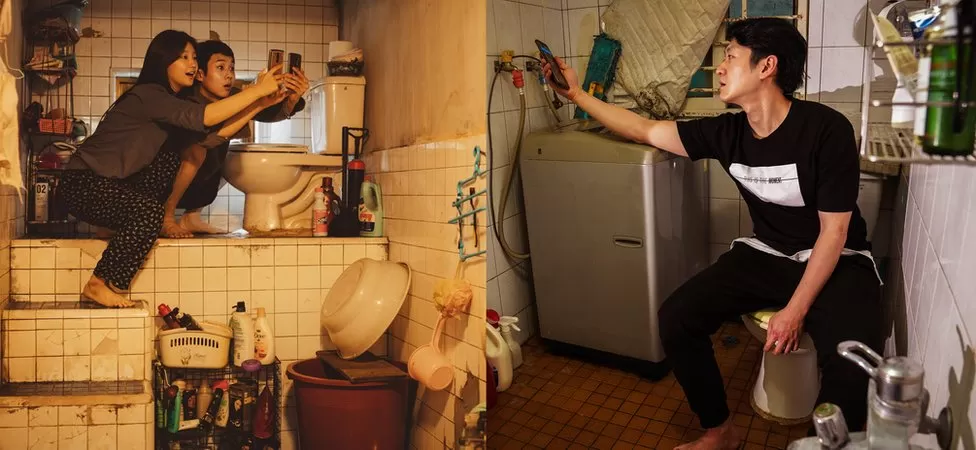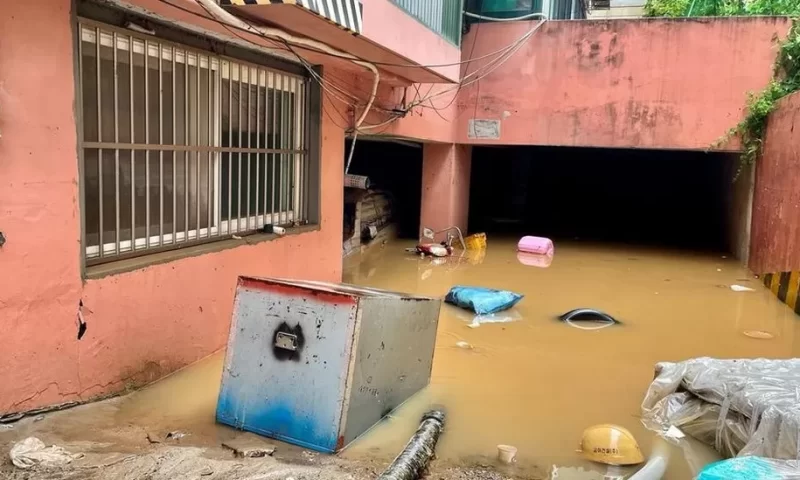South Korea’s capital Seoul will move to phase out semi-basement flats after two women and a teenager died during flooding earlier this week.
The tiny flats, featured in the Oscar-winning film Parasite, are usually rented out to people on low incomes.
Seoul will no longer give out permits to construct such homes from this week on and will gradually convert existing apartments, officials said.
This comes after the city was hit by the heaviest rains in 80 years.
As of Wednesday, at least 11 people were confirmed dead or missing as a result of the floods, which have gone on for three days.
On Monday night, two sisters in their 40s and a 13-year-old girl were found dead in their flooded semi-basement flat.
They had reportedly sought help as their home filled with water, but rescuers were unable to reach them.
The tragedy has renewed attention on income inequality and the dangers of living in the semi-underground flats – or banjiha – which are known for cheap rents and poor living conditions.
On Wednesday, officials said that the city would consult with the government to revise the building law to completely ban the use of basement or semi-basement spaces for residential purposes, according to a Yonhap report.
The city will give owners of such flats 20 years to convert them for non-residential uses such as storage or parking lots.
Authorities will also provide support for existing banjiha tenants to move to public rental housing, according to reports.
“Underground and semi-underground housing threatens the vulnerable in all aspects,” Seoul Mayor Oh Se-hoon told Yonhap.

Bong Joon-ho’s 2019 film Parasite, which featured a low-income family living in a banjiha in Seoul, raised awareness of these flats internationally.
Following the Oscar-winning movie’s success, the city government said it would financially support 1,500 households living in semi-basement apartments so that they could improve their living conditions.
As of 2020, there were about 200,000 such flats in Seoul – making up 5% of all households in the capital – official data shows.

